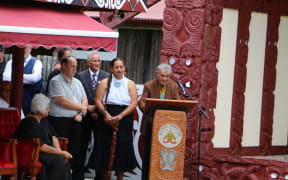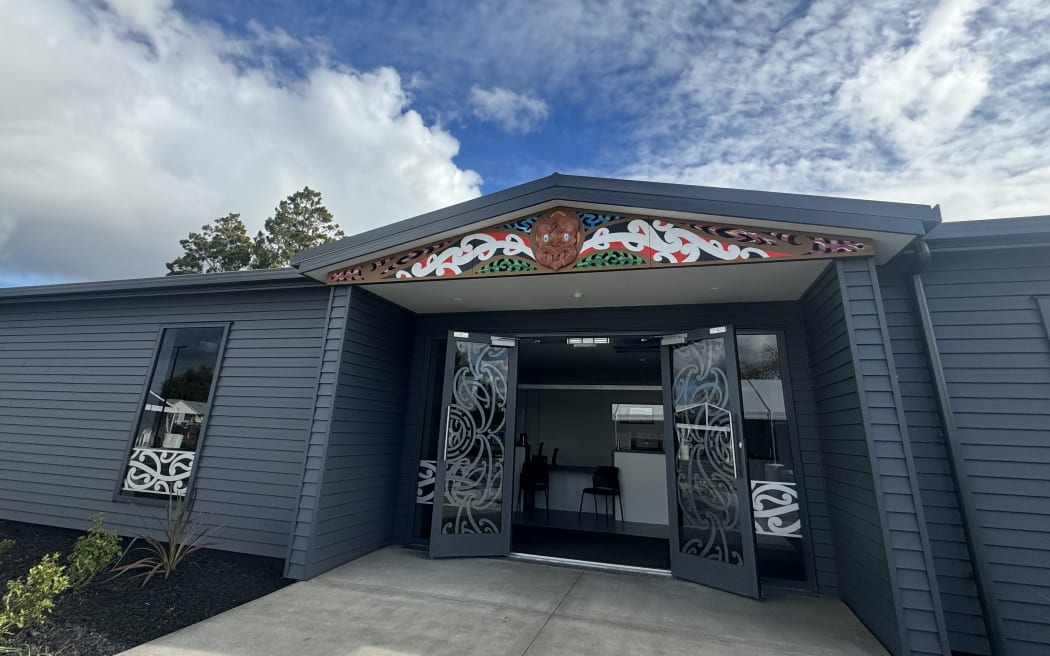
The new Taakiri Tuu Wellness and Diagnostic Centre in Hamilton. Photo: Supplied / Sarah Sparks
Hamilton's new Te Kōhao Health, Wellness and Diagnostic Centre is designed to give Māori in the region tino rangatiratanga over their own health.
The East Hamilton facility was officially opened by Kiingi Tuuheitia this morning.
Te Kōhao Health chief executive Lady Tureiti Moxon said the opening of the centre was the end of six-year process of fundraising, designing and building the facility.
The centre was named Taakiri Tuu, a name given by Kiingi Tuuheitia, she said.
Speaking at the opening, Kiingitanga spokesperson Ngira Simmonds said Kiingi Tuuheitia gave the name in recognition of the hui he called for unity earlier this year.
"Kiingi Tuuheitia has bestowed the ingoa Taakiri Tuu on this whare because on the 20th of January we all captured something quite profound, we encountered a moment at Tuurangawaewae across Aotearoa and across the world that has enlivened mana motuhake and this whare is an embodiment and a testimony to everything that day meant, and here at this place we will see it continue forever," he said.
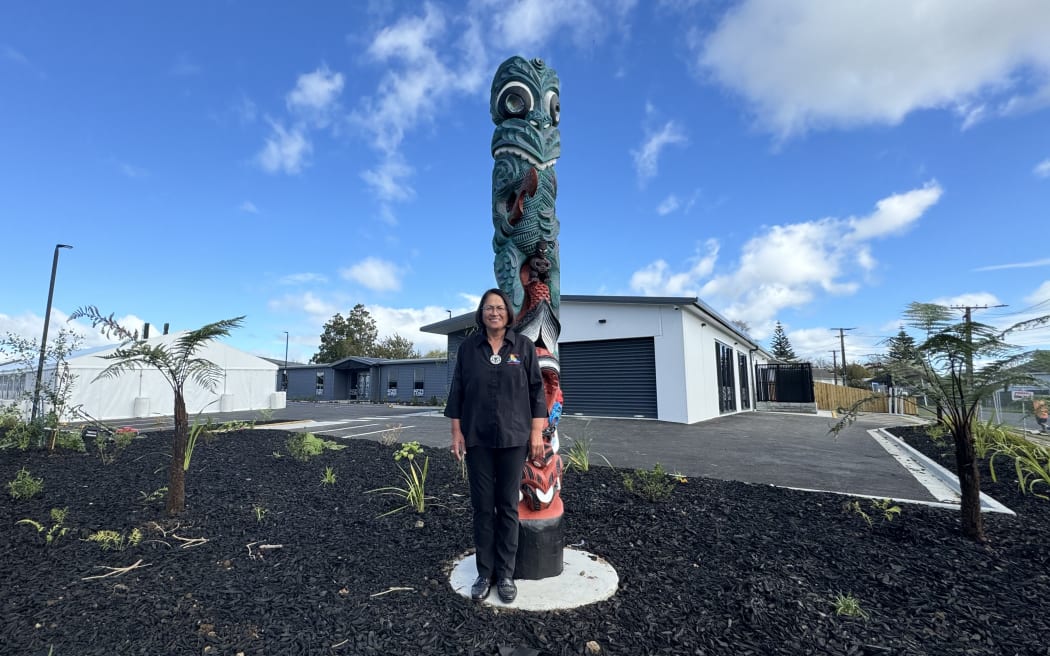
Lady Tureiti Moxon at the new Taakiri Tuu Wellness and Diagnostic Centre in Hamilton. Photo: Supplied / Sarah Sparks
Lady Tureiti said the team at Te Kōhao were blessed that the king opened the whare, and that the kaupapa had been supported by the people of Tainui.
She said Māori were dying needlessly of preventable diseases and Te Kōhao Health wanted to get those in need of services to the front of the line.
"I think for a long time [health has] been removed from our communities because you have to go to the hospital, you have to go to where the clinicians are. This way what we're trying to do is bring the clinicians out into the community where the people are."
Cardiovascular disease, lung disease, breast cancer, cell cancer and cervical cancer were the biggest killers of Māori and inequities were widening in places, Moxon said.
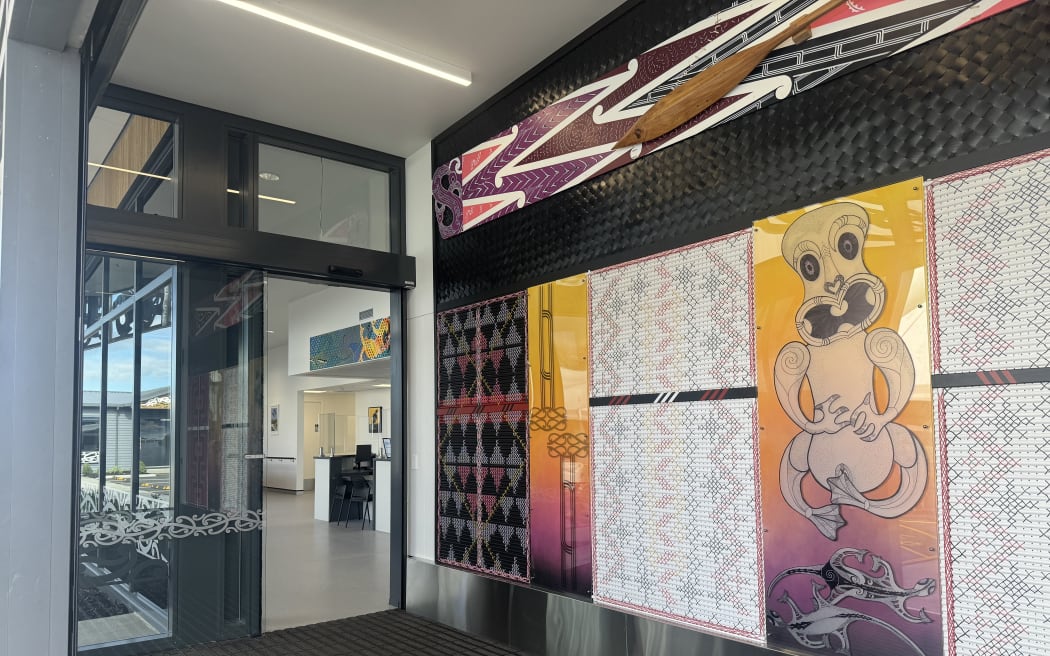
The new Taakiri Tuu Wellness and Diagnostic Centre in Hamilton. Photo: Supplied / Sarah Sparks
The response from Te Kōhao Health had been for Māori to find Māori solutions, she said.
"We want doctors to refer our people here, because part of the issue that we have in Māori health is that a lot of people can't afford x-rays, they can't afford to be seen in places that actually charge like bull out of a gate. So what we're trying to do here is to try and grow our own capacity, so we can see people when they need to be seen."
Although the centre was focused on reducing inequities in Māori health, the doors of Taakiri Tuu were open to anyone, Lady Tureiti said.
"We've always been open to embracing all of our community no matter who they are and where they are, and certainly that's going to be true of this facility."
As part of the new centre Te Kōhao Health have entered a partnership with Pacific Radiology - part of RHCNZ Medical Imaging Group - to run x-rays and medical imaging.
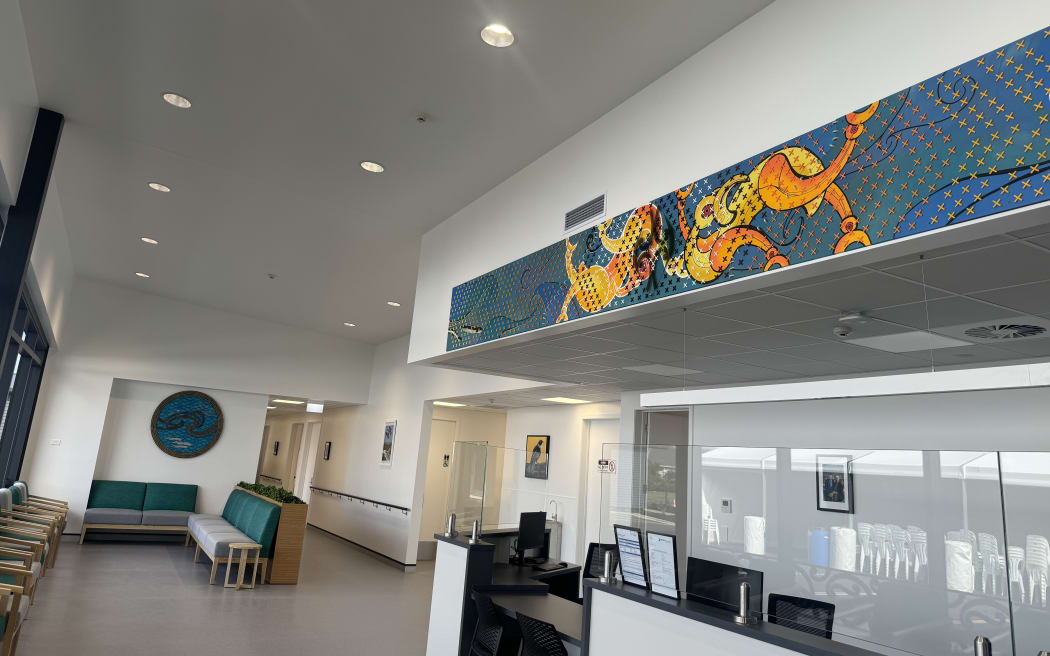
The new Taakiri Tuu Wellness and Diagnostic Centre in Hamilton. Photo: Supplied / Sarah Sparks
Lady Tureiti said that partnership would be enhanced by Te Whatu Ora, which would bring their health clinics down into the Waikato community.
RHCNZ Medical Imaging Group chief executive Terry McLaughlin said this was the first partnership of its kind between Pacific Radiology and a Māori community provider.
"I think this has the potential to go really well and might be the first of a range of joint ventures that we could look at."
It could be a way for Pacific Radiology get closer and bring services to local Māori communities, he said.
"Pacific Radiology will learn a lot around this relationship because our focus has been pretty mainstream and that hasn't necessarily been delivering the goods for Māori, so I think looking at different ways of delivering better health outcomes for Māori is a good thing, something we can learn and apply elsewhere."
